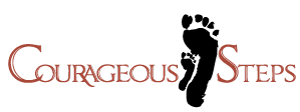DPLS 743: Leadership and Consulting
Expected Competencies:
Understanding the Role of the Consultant: Demonstrate a nuanced understanding of the differences between leadership and consulting roles, including ethical considerations, psychological challenges, and the necessity of emotional intelligence in consulting relationships.
Mastery of the Consulting Process: Develop competency in the full consulting cycle: from contracting and discovery to analysis and implementation. Understand how to diagnose issues, manage resistance, and offer data-driven feedback.
Professional Communication and Relationship Building: Cultivate strong interpersonal communication skills necessary for client engagement, negotiation, and collaborative problem-solving.
Strategic Business Acumen: Gain insight into the business of consulting, including marketing strategies, fee structuring, proposal writing, and launching a sustainable consulting practice.
Contextual Application of Consulting: Apply consulting principles across various organizational types, including nonprofits, education systems, and government entities. Explore real-world applications through interviews with practitioners.
Achieved Competencies:
Applied Understanding of Consultant Identity: Through course discussions and personal reflection, I clarified the psychological dynamics of being a consultant. I gained appreciation for balancing expertise with humility and listening with intention.
Proficiency in Consulting Process Models: I internalized and applied the structured consulting process, particularly the phases of contracting, discovery, and feedback. I learned how to guide clients without becoming enmeshed in their organizational politics.
Real-World Learning from Practitioners: Interviews with professional consultants broadened my perspective on what it takes to build trust, grow a client base, and succeed in mission-driven or value-based consulting practices.
Development of a Personal Consulting Philosophy: I articulated a values-based consulting stance rooted in social justice, relational trust, and organizational transformation. This personal consulting stance is aligned with my professional identity as a leadership scholar-practitioner.
Applied Competencies:
Consulting Presentation: I delivered a consulting presentation grounded in research, interviews, and my personal leadership values. This presentation clarified a potential consulting niche I am actively pursuing.
Engaged Dialogue and Peer Coaching: Weekly dialogue boards and synchronous Zoom discussions sharpened my ability to challenge and support peers—mirroring the balance consultants must strike with clients. I practiced giving constructive feedback and being open to critique.
Consulting Toolkit Development: I curated a mini-library of consulting resources (academic articles, practitioner insights, and templates), establishing a personalized toolkit I can use in future engagements.
Artifact Inclusion:
Consulting Presentation: My presentation shared during our final class session, synthesizes my learning throughout the course and proposes a practical consulting intervention for a real-world challenge.
Consulting Stance Reflection Paper: A personal manifesto of the kind of consultant I aim to be—infused with lessons from Flawless Consulting, The McKinsey Way, and field interviews.
Discussion Board Contributions: A compilation of selected insights from weekly engagements that showcase my developing voice as a practitioner-scholar in the consulting space.
References:
Biech, E. (2019). The new business of consulting: The basics and beyond. Wiley.
Block, P. (2011). Flawless consulting: A guide to getting your expertise used. Wiley.
Rasiel, E. M. (1999). The McKinsey way: Using the techniques of the world’s top strategic consultants to help you and your business. McGraw-Hill.
Additional articles submitted to coursepack by peers and instructor recommendations.
Keywords:
Consulting process, organizational transformation, emotional intelligence, self-as-consultant, Flawless Consulting, contracting and discovery, ethical engagement, practitioner-scholar, feedback loops, client systems, trust-building, personal consulting stance, strategic influence, systems diagnosis, social impact consulting.

